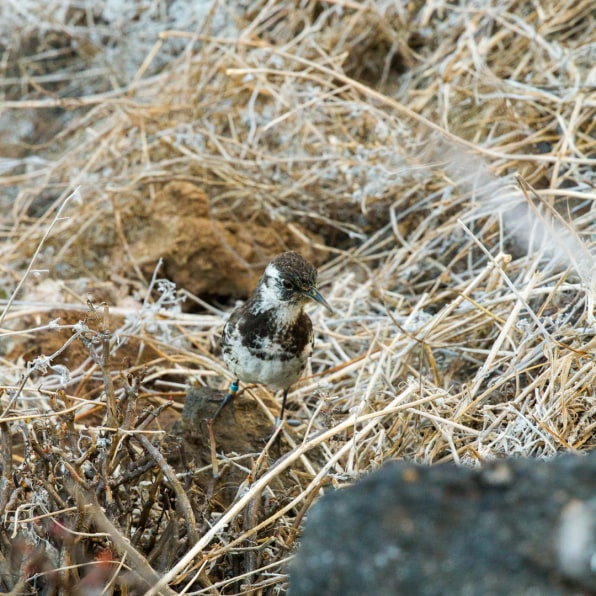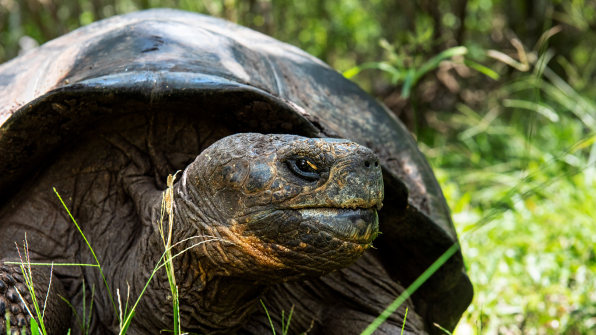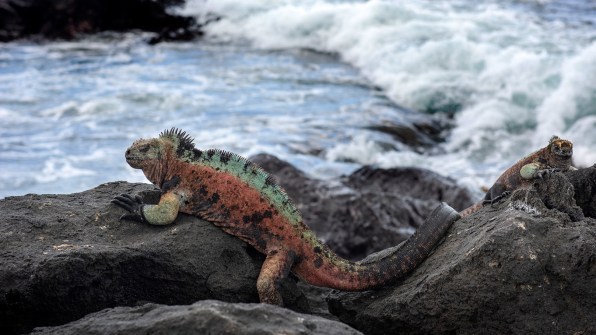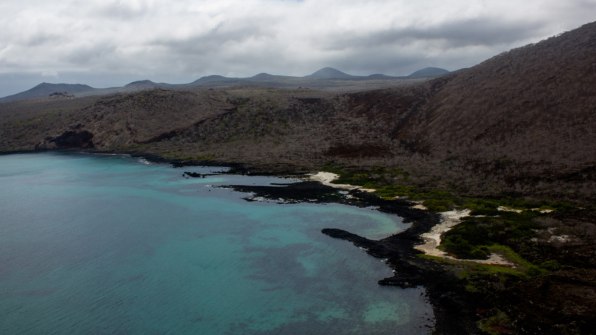28 May 2021
By eliminating invasive species and helping animals breed, conservationists hope to make the islands’ flora and fauna more closely resemble what Charles Darwin encountered when he arrived almost two centuries ago.

BY ADELE PETERS
28 May 2021
When Charles Darwin visited the Galápagos Islands in 1835, he took notes on a brown bird later called the Floreana mockingbird, which was widespread throughout an island that shared its name. Fifty years later, after the area had been colonized and feral cats and rodents had arrived with humans, the bird had disappeared from the island.ADVERTISEMENT
Now, a new $43 million initiative, backed in part by Leonardo DiCaprio, hopes to bring the bird back, along with other species that are now locally extinct. Re:Wild, the new organization, is supporting a major effort to “rewild” the area.

Island Conservation, a nonprofit already working in the Galápagos, will use the funding to scale up its work. In the case of the mockingbird, that will mean going to two smaller islands where a tiny population of the species still exists, and relocating some of the birds. It will also mean first eliminating the invasive species that could kill them.

The nonprofit previously ran a similar effort on another island, where eliminating rodents helped tortoises recover because the rats were no longer eating tortoise eggs. “We were able to remove invasive species, and the ecosystems were restoring themselves,” says Paula Castaño, an island restoration specialist with Island Conservation who lives in the Galápagos. “And we were able to see giant tortoises—finally, after 150 years, they were breeding and surviving in the wild, which they didn’t do for a long time.”ADVERTISEMENT

The new campaign will also focus on the pink iguana, an endangered lizard that currently lives only on a local volcano. “Because it’s an active volcano, the volcano can just erupt and you can potentially lose the population forever,” Castaño says. The nonprofit will begin a captive breeding program, since only around 300 animals are left. In total, the campaign plans to reintroduce 13 different species, including the mockingbird and iguana, that are now locally extinct on Floreana Island.

Most of the Galápagos is a national park and relatively pristine. But Re:Wild plans to do similar work in other parts of the world that are more developed. “We need to protect the wild that is left and restore the rest,” says Robin Moore, vice president of communications for Re:Wild. “While some areas contribute disproportionately to global biodiversity and need urgently to be protected, it is important to rewild those areas that have lost much of their biodiversity—including in and around cities.”
ABOUT THE AUTHOR: Adele Peters is a staff writer at Fast Company who focuses on solutions to some of the world’s largest problems, from climate change to homelessness. Previously, she worked with GOOD, BioLite, and the Sustainable Products and Solutions program at UC Berkeley, and contributed to the second edition of the bestselling book “Worldchanging: A User’s Guide for the 21st Century.”
Read the original coverage via Fast Company at https://www.fastcompany.com/90639446/how-this-leonardo-dicaprio-backed-rewilding-plan-will-restore-galapagos-ecosystem
Informing and sharing news on marine life, flora, fauna and conservation in the Galápagos Islands since 2017
© SOS Galápagos, 2021
